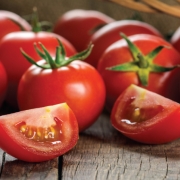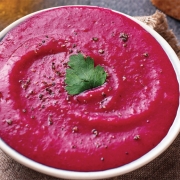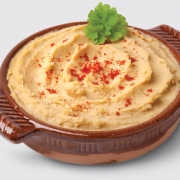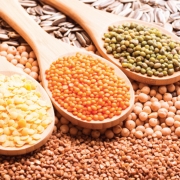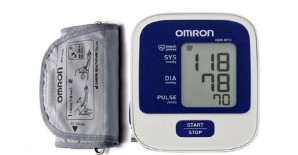
Health
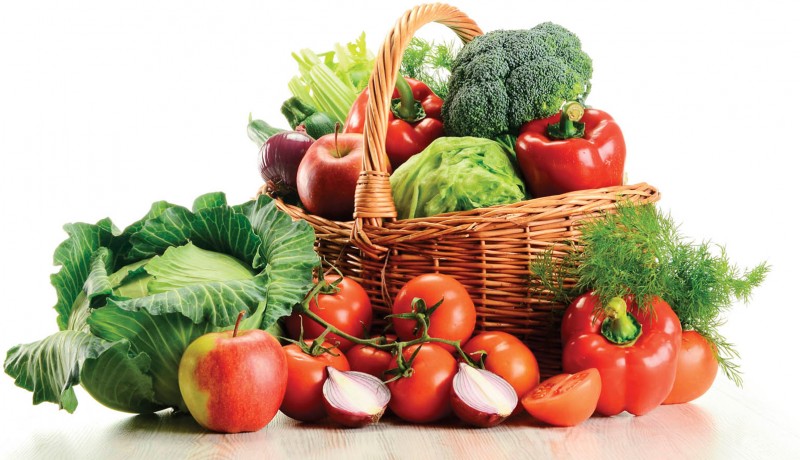
Switch to a plant-based diet to reverse, retard and prevent cancer, says wellness consultant Naini Setalvad
Over the years, I have come across a number of cancer cases and seen a lot of silvers succumbing to the disease. My only advice is to manage cancer intelligently—the best way to do it is to ‘calm down’ and improve the quality of your daily diet. As a nutritionist, my primary aim is to help my clients convert scientific research on food into practical methods that can be used in their daily cooking. Eating right can help you reverse, retard and prevent cancer.
Let us look at the way the body works. Each and every function is conducted by the body’s cells and their condition defines your well-being. Body cells are constantly working in the way of breathing oxygen, digesting food or excreting waste and carbon dioxide. As you age, the functioning of your cells gradually slows down, thus lowering their immunity. This leaves some cells unprotected and they can eventually turn carcinogenic, which means they gather the potential to cause cancer. Also, as a by-product of breathing, free radicals get attached to healthy cells and turn them carcinogenic. If your body is deficient in nutrients, it further generates cancer cells.
However, the good news is that you can counter this damage with help from Mother Nature, the best healer of all diseases. Eating a plate full of the plant kingdom is a simple and easy way to put you on the pathway of good health. I strongly believe the rainbow of colours present in the way of fruits, vegetables, greens and spices protects you against diseases.
Nature produces natural compounds in the plant kingdom called antioxidants. When you eat plants, antioxidants enter your bloodstream and protect your body cells from the attack of free radicals, thus leaving your cells and chromosomes alone. I advocate that all silvers, especially those undergoing chemotherapy or battling cancer at any stage, should add more natural produce in their diet. Natural, wholesome, organic, seasonal and regional foods are the key to protect your body cells and prevent cancer.
JAV ROTI
Ingredients
- Jav (barley) flour: 100 gm
- Water: 100 ml
- Chilli paste: ½ tsp
- Coriander leaves: ½ cup; chopped
- Salt to taste
Method
Take water in a vessel and put it on medium flame. As it starts boiling, add jav flour, chilli paste and coriander and leave it for 2-3 minutes. Do not stir. Take it off the flame and stir with a wooden spoon so no lumps are formed. After it gets mixed well and cools down, transfer to a flat plate. Knead the flour well and roll it into rotis. Cook jav rotis on a heated griddle, applying ghee if desired.
BEETROOT DIP
Ingredients
- Beetroot: 200 gm
- Lemon juice: ½ tsp
- Garlic paste: ½ tsp
- Walnuts: 5 tsp; coarsely ground
- Salt to taste
Method
Boil the beetroots and blend them into a paste. Put the paste in a vessel and add lemon juice, garlic paste, ground walnuts and salt. Mix it well. Chill and serve with vegetable crudités.
MOONG HUMMUS
Ingredients
- Moong dal (split): ½ cup
- Water: 1 cup; boiled
- Black pepper: ½ tsp; powdered
- Onion: ¼ cup, minced
- Garlic: 1 clove; minced
- Parsley: 2 tbsp; minced
- Lemon juice: 1 tsp
- Tahini: 1 tbsp
- Olive oil: 2 tsp
- A pinch of sea salt
Method
Wash the moong dal and add to the boiling water; cook it over medium heat for 8-10 minutes. Remove it from flame when cooked but still firm. Mash the dal in a bowl and add salt and black pepper. Heat olive oil in another pan and sauté onions in it for 3 minutes. Add garlic and parsley and sauté again for few minutes. Then combine the moong mixture, sautéed onion and parsley mixture and lemon juice, and grind to a fine paste. Add tahini and blend again. Serve the moong hummus with pita bread.
RADISH CHUTNEY
Ingredients
- Radish: 1; medium-sized
- Kashmiri red chillies: 1 or 2
- Coriander seeds: ¼ tsp
- Coconut: ¼ cup; grated
- Tamarind: ¼ inch piece
- Salt to taste
For the tempering
- Mustard seeds: ¼ tsp
- Curry leaves: 4-5
- Cooking oil: 1 tsp
Method
Wash and grate the radish and keep aside. Mix the grated coconut, red chillies, coriander seeds, tamarind and salt in a mixer. Add a little water and finely grind. Mix with the grated radish and grind again for a few seconds. Transfer to another bowl and add tempered mustard seeds and curry leaves. Serve with hot rice or idli.
Antioxidants that battle cancer
- Beta-carotene: Beta-carotene is one of the most commonly known antioxidants. Foods that have yellowish-orange pigmentation contain beta-carotene; for example, pumpkin, carrots, yellow bell peppers, sweet potato, mango and apricot. I love adding these foods to my plate as they not only brighten up my dish but my day as well! Beta-carotene is not only found in yellow-orange coloured vegetables and fruits but is richly present in dark green vegetables like spinach. Beta-carotene is one of the best fighters of free radicals. Once it enters your body, it surrounds your cell membranes and patiently waits to fend off any free radicals that arrive. A high dose of beta-carotene inhibits the absorption of other nutrients, so I would advise silvers to include beta-carotene via whole foods instead of supplements.
- Lycopene: Oh, how I love to see the colour red on my plate! It just seems to make a dish more vibrant and appetising. Tomatoes, watermelon, red bell pepper, pink grapefruit and many other bright red pigmented foods are rich in lycopene. It is so easy to add tomatoes in your daily diet by way of soups, sandwiches, vegetables, salads, sambar, dal, pulses or rice. While pink grapefruit can be eaten in winter, summer is the time for a fresh, cooling slice of watermelon. Lycopene is part of the carotenoid family and, therefore, an extremely powerful antioxidant. It is known to considerably reduce prostate cancer in men. However, pay heed to the fact that not all red-coloured foods contain lycopene; strawberries and cherries have anthocyanin, which are antioxidants in their own right too.
- Vitamin E: Like beta-carotene and lycopene, Vitamin E envelopes your cell membrane to prevent free radical damage. Your dal, pulses, legumes, whole grains, plants, nuts and seeds are rich in natural oils, which contain Vitamin E. Research says too much Vitamin E in the body can lead to breast cancer in women. So make sure you maintain moderate levels of the vitamin.
- Selenium: Selenium is a mineral and part of the antioxidant army. It is especially known for its role in maintaining healthy tissues in the ovary, as they succumb to ageing the fastest. As the tissues get older, follicle health gets weaker, affecting progesterone levels in the body. Selenium not only helps prevent ovarian cancer but protects the thyroid function from stress and helps convert hormone T4 into T3, the active form of the thyroid hormone. Selenium is found in ajwain seeds, garlic, jav (barley flour) and brown rice.
- Vitamin C: This powerful antioxidant is found in abundance in many of our day-to-day foods. The most common source of Vitamin C is lemon and silvers should make it a point to include it daily in their diet. Squeeze it on salads, soups and vegetables or have it as a lemon shot. Other sources of Vitamin C include amla, the Indian gooseberry, and guava. Guavas contain five times more vitamins than lemons, so try and consume them whenever they are in season. Vegetables such as cabbage, peppers, French beans, cluster beans, cauliflower, eggplant (brinjal), drumsticks and its leaves, radish leaves and spinach; and roots such as sweet potato are also rich in Vitamin C. Sweet potato is a health-enhancing nutrient and a must-have in your diet to help you fight cancer.
- Phytochemicals: Phytochemicals are natural chemicals found in cruciferous vegetables and the allium family of vegetables that are found in most regions of the world. Cruciferous vegetables such as cauliflower, cabbage and mustard greens inhibit the influence of hormone-dependent cancers. The allium group of vegetables, on the other hand, speeds up the elimination of carcinogens and inhibits the growth of cancer cells. The allium group includes garlic, onions and shallots.
Setalvad is an obesity and lifestyle disease consultant who offers diet counselling at Health for You, a wellness clinic in Mumbai, as well as online. Visit www.nainisetalvad.com for more details or write to contact.us@harmonyindia.org if you have any queries for her
Photos: iStock Featured in Harmony — Celebrate Age Magazine December 2018
you may also like to read
-
Hot tea!
If you enjoy sipping on that steaming hot cup of tea, think twice. New research establishes a link between drinking….
-
Weight and watch
If you have stayed away from lifting weights at the gym, thinking it might not be a good idea for….
-
Toothy truth
Research has established a clear association between cognitive function and tooth loss when cognitive function score was categorised into quintiles…..
-
PRODUCT OF THE MONTH
Automatic Blood Pressure Monitor Measure your blood pressure and pulse rate with no fuss Hypertension, or high blood pressure, could….



